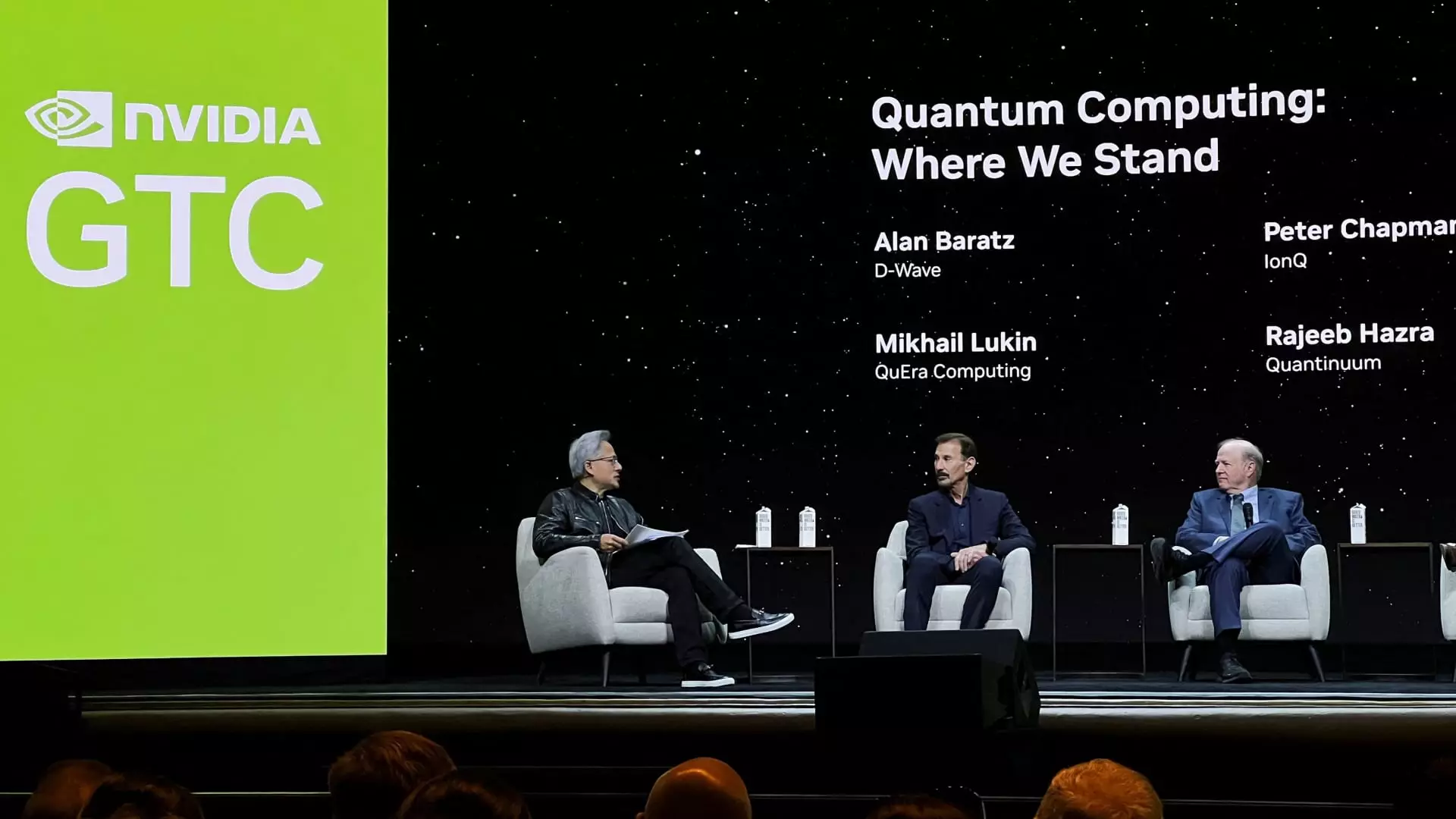In a bold move that echoes through the corridors of technological ambition, Nvidia’s CEO, Jensen Huang, recently convened a gathering to recalibrate perceptions surrounding quantum computing at what he termed “Quantum Day.” Originally, Huang painted a daunting picture, suggesting that true quantum breakthroughs could be as distant as 15 to 20 years. Fast forward to the present, and his attempt to amend his earlier statements only exposed the precarious balance of investor trust in the volatile realm of quantum stocks. This dramatic pivot, rather than soothing the marketplace, appears to have ignited fresh skepticism.
The aftermath of this event shows that the promise of quantum computing is not just seductive rhetoric; it’s also fraught with precarious expectations. Investors have now been left questioning whether quantum computing is still a unicorn awaiting discovery or merely pipe dreams leaving investors guessing. Huang, presumably intent on showcasing support for the struggling industry, saw stocks from key quantum players plunge—D-Wave plummeted by an astonishing 18%, while others, like Rigetti Computing and IonQ, fared no better. These significant drops trigger a hard question: Is the quantum industry in danger of becoming a speculative bubble?
The Dichotomy of Promise and Reality
The duality of Huang’s statements serves as a stark reflection of a larger quandary within the technology sector. On one hand, the promise of quantum computing embodies revolutionary potential, offering solutions that classical computers simply cannot fathom. On the other, there’s a growing sentiment that these lofty dreams could align more closely with sci-fi novels than practical application. The dichotomy was palpable as Huang declared his initial remarks had been misinterpreted, yet the diction he employed throughout the conference was anything but reassuring.
An analyst from Needham, N. Quinn Bolton, raised another salient point—Huang’s branding of quantum computing as “a special tool” could signal an identity crisis. By downplaying the term “computer,” which evokes grand imagery of digital supremacy, Huang might inadvertently cast a shadow over quantum’s perceived significance. Is it wise to rebrand a potentially groundbreaking technology just to manage investors’ expectations? Or does that further confuse the public narrative around what quantum computing can achieve?
Quantum Computing as a Buzzword
Huang’s commentary interspersed optimism with realities that hint at quantum computing becoming a mere buzzword, manipulated to drive speculative investments. The gravity of his miscalculations—seeing market reactions as beyond his control—raises more concerns than it answers. If a CEO of a groundbreaking tech company can easily misjudge public sentiment, what does that mean for the rest of us who are investing faith—and money—into quantum technologies?
Despite a panel of executives showcasing decisions and potential partnerships, the underlying instability of the market suggests that quantum computing’s trajectory is as unpredictable as the technology itself. It’s curious that Huang would rally major quantum companies, yet in doing so, he may be inadvertently lowering the industry’s overall credibility by failing to clarify the complex landscape ahead.
The Reality Check for Investors
The collective downturn we saw following Nvidia’s Quantum Day is indicative of a much-needed reality check for investors. It demonstrates that hype is not a substitute for progress. For all its promise, investors remain understandably cautious. The Quantum Defiance ETF, a supposed bellwether of the sector, tumbled more than 4% this year, highlighting the growing disenchantment with an industry that has overstayed its welcome on the ‘innovative technology’ pedestal.
As Huang cautions us about unrealistic expectations, it’s vital for the narrative around quantum computing to include a frank dialogue about timelines, capabilities, and market readiness. All the while, Nvidia’s own upward trajectory—fuelled by GPUs—is proof that while quantum’s future feels nebulous, the road ahead must be paved with calculated strides rather than leaps fraught with whimsical ambition.
Looking Ahead
In the crossroads of hope and skepticism, Nvidia’s Quantum Day serves as a reminder of the challenges faced by an industry racing towards an uncertain future. One must ponder—what lies in store if quantum computing cannot deliver on its promises in a timely fashion? As we navigate this wild sector, it becomes increasingly apparent that establishing a realistic framework is imperative; otherwise, we risk succumbing to the hubris of innovation without grounding that optimism in tangible achievement. Quantum computing’s clarity, it appears, is yet to be deciphered.

